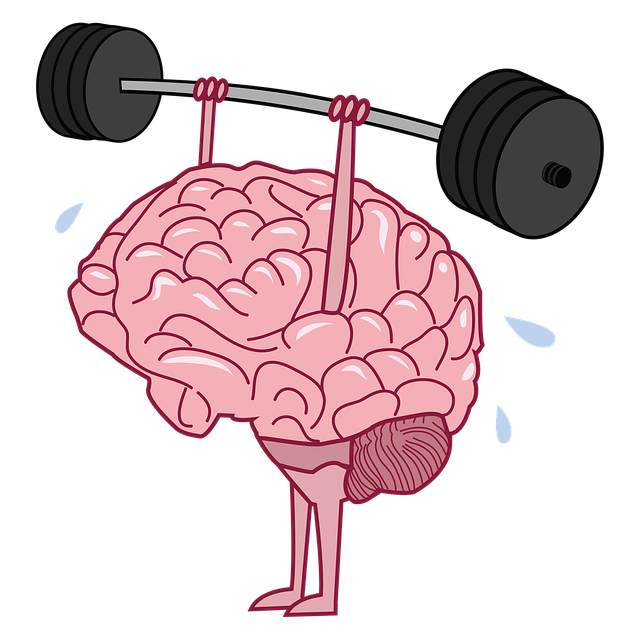Englewood German Speaking Therapy offers specialized trauma support tailored to the unique needs of German-speaking individuals facing language barriers and cultural disparities. They provide comprehensive risk assessments, evidence-based treatments like CBT and EMDR, and holistic care integrating mindfulness, social skills training, and self-esteem improvement. The center prioritizes mental wellness journaling, stigma reduction, healthcare provider training, and community resource connections to empower clients in overcoming trauma and cultivating resilience.
Trauma, a profound and lasting impact on an individual’s mental health, requires specialized support. This article explores comprehensive trauma care, focusing on the vital role of Englewood German Speaking Therapy in assisting individuals on their path to healing. We delve into understanding trauma, its far-reaching effects, and effective assessment methods. Furthermore, it highlights successful treatment approaches, emphasizes community integration for holistic care, and showcases how organizations like Englewood German Speaking Therapy are revolutionizing trauma support.
- Understanding Trauma and Its Impact
- The Role of Englewood German Speaking Therapy in Support
- Identifying and Assessing Trauma in Clients
- Effective Treatment Approaches and Techniques
- Community Resources and Integration for Comprehensive Care
Understanding Trauma and Its Impact

Trauma is a profound and complex experience that can leave lasting effects on an individual’s mental health and overall well-being. It refers to a deeply distressing or disturbing event, often involving life-threatening or high-risk situations. Englewood German Speaking Therapy recognizes that trauma can manifest in various forms, including but not limited to, accidents, natural disasters, violence, abuse, or war. The impact of such events can be far-reaching, affecting not just the present but also shaping future behaviors and emotional responses.
Understanding trauma is a crucial step towards providing effective support. It involves recognizing the physical and psychological symptoms that may surface, such as flashbacks, nightmares, severe anxiety, depression, or even substance abuse. Through comprehensive risk assessments for mental health professionals, individuals can receive tailored interventions. These services aim to foster inner strength development, helping clients navigate their traumatic experiences and promote mental wellness.
The Role of Englewood German Speaking Therapy in Support

Englewood German Speaking Therapy plays a pivotal role in trauma support services by providing specialized care tailored to individuals who may struggle with language barriers or cultural disparities in traditional therapy settings. This therapeutic approach recognizes the unique needs of German-speaking clients, ensuring they receive effective treatment for their trauma experiences. By offering services in their native language, therapists foster an environment where clients feel understood and comfortable, encouraging open communication.
The therapy center’s expertise lies in integrating Mental Wellness Journaling Exercise Guidance to help individuals process their traumas and emotions effectively. Additionally, Englewood German Speaking Therapy contributes to Mental Illness Stigma Reduction Efforts by promoting understanding and acceptance within the German-speaking community. They also emphasize Healthcare Provider Cultural Competency Training, ensuring that therapists are equipped to handle diverse cultural backgrounds and challenges, thereby enhancing overall care quality.
Identifying and Assessing Trauma in Clients

Identifying and assessing trauma is a critical step in providing effective support to clients who have experienced distressing events. At Englewood German Speaking Therapy, we recognize that trauma can manifest in various ways, often influencing an individual’s emotional, behavioral, and physical well-being. Our trained therapists employ a range of assessment tools tailored to each client’s unique needs, ensuring a comprehensive understanding of their traumatic experiences.
This process involves exploring personal histories, current challenges, and specific symptoms, which may include flashbacks, nightmares, or heightened anxiety. By integrating techniques like mindfulness meditation, our specialists help clients develop coping mechanisms and cultivate a sense of safety. Moreover, we emphasize the importance of burnout prevention strategies for healthcare providers, as supporting trauma survivors can be emotionally taxing. Through these approaches, Englewood German Speaking Therapy facilitates emotional healing processes, empowering individuals to reclaim their lives and foster resilience in the face of adversity.
Effective Treatment Approaches and Techniques

Trauma support services have evolved to incorporate a range of effective treatment approaches tailored to address complex emotional needs. One such successful model is German-speaking therapy, offered in Englewood, which has shown remarkable results in helping individuals process and overcome traumatic experiences. This therapeutic approach leverages cultural sensitivity, allowing clients to express themselves freely in their native language, creating a safe and supportive environment.
Integrating evidence-based techniques like Cognitive Behavioral Therapy (CBT) and Eye Movement Desensitization and Reprocessing (EMDR), Englewood German Speaking Therapy provides comprehensive care. CBT equips individuals with coping strategies to manage traumatic memories while EMDR facilitates the processing of distressing events, reducing their impact on mental health. Furthermore, Social Skills Training and Self-Esteem Improvement components empower clients to rebuild their lives with enhanced confidence and a renewed sense of self, addressing holistic healing. Through these multifaceted interventions, trauma survivors can find the support they need to navigate their journey towards recovery.
Community Resources and Integration for Comprehensive Care

Englewood German Speaking Therapy offers a unique advantage by integrating community resources into their comprehensive care approach. This strategy ensures that individuals receive holistic support tailored to their specific needs. By connecting clients with local services, therapists facilitate access to various resources such as support groups, community health programs, and cultural activities, fostering an environment conducive to healing and growth.
The integration of self-care routines development for better mental health is a key component within this model. Encouraging clients to explore and engage in activities that enhance their well-being, improve positive thinking, and boost self-esteem, allows for a more sustainable recovery. This holistic care ensures individuals not only receive treatment but also develop the tools and resources needed to navigate life’s challenges with resilience and confidence.
In conclusion, trauma support services play a pivotal role in helping individuals heal from the profound effects of traumatic experiences. By understanding the impact of trauma and employing evidence-based approaches like those offered by Englewood German Speaking Therapy, therapists can provide comprehensive care. Identified through careful assessment, effective treatment techniques can facilitate clients’ journeys towards resilience. Furthermore, integrating community resources ensures a holistic approach to healing, empowering individuals to overcome trauma and rebuild their lives.














